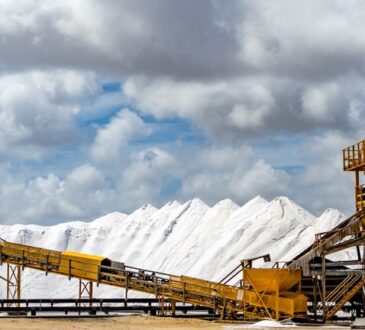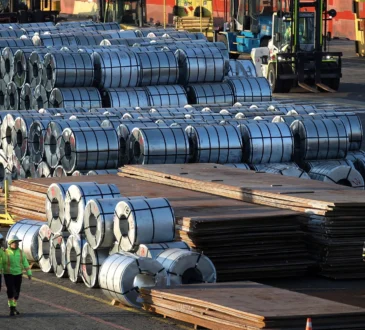
Cocoa remains one of Africa’s most traded and valuable agricultural commodities, sustaining millions of farmers and keeping global supply chains running. Côte d’Ivoire and Ghana sit at the centre of this ecosystem, together accounting for more than 60 percent of the world’s cocoa output, while Cameroon and Nigeria add significant volumes. In 2024, Côte d’Ivoire production was around 1.85 million tonnes, and Ghana around 650,000 tonnes, confirming West Africa’s position as the world’s cocoa heartland.
Beyond these production numbers lies a deeper economic fact, cocoa has moved beyond being a mere crop to becoming the backbone of rural livelihoods and a cornerstone of national economies. In Côte d’Ivoire, the cocoa industry contributes roughly 14% of GDP [TT1] and employs more than one-fifth of the population. In Ghana, it accounts for nearly a quarter of total export earnings.
Across West and Central Africa, more than five million smallholder farmers [TT2] depend directly on cocoa, with millions more engaged in its transport, trade, and warehousing. For many households, income from cocoa provides access to education, healthcare, and improved living standards. The sector’s revenues also sustain government budgets and rural infrastructure development, making it one of the few agricultural industries that link smallholder productivity with national growth.
There is no doubt that the economic footprint of cocoa extends far beyond farms. It influences exchange rates, shapes fiscal policy, and supports entire value chains, from rural logistics operators and cooperatives to port workers and exporters. When global cocoa prices fluctuate, entire communities feel the impact. And when trade flows remain steady, so too does social stability across producing nations. This interdependence highlights why the sector’s health is a matter of importance, and why every actor, from farmer to logistics partner, plays a decisive role in protecting and growing its value.
Logistics: The Critical Link in Cocoa Value Creation
Nevertheless, behind these impressive figures lies a crucial question: how does Africa turn raw cocoa into lasting economic value? While some producing countries are gradually expanding local grinding and packaging, the sector’s strength still lies overwhelmingly in raw bean exports. And for these exports to capture their worth from farm to factory, one element remains indispensable: reliable logistics.
Cocoa is sensitive. A change in humidity, temperature, or handling conditions can lower bean quality and lead to costly rejections. Every stage, from collection to storage to shipping, must maintain a delicate balance between time, temperature, and care. Poor logistics can undo months of farmers’ labour in a single voyage.
That is where logistics shifts from a back-office function to a competitive edge. For a world leader in global shipping like MSC, its role in the cocoa value chain is both practical and crucial. The company’s thermal liner solutions and sensitive-cargo protocols are designed to keep beans dry and stable, preventing damage caused by condensation or heat.
Its inland transport and warehousing network connect remote farming communities to major ports, reducing delays and losses. And through digital solutions such as shipment tracking and electronic Bills of Lading, MSC provides visibility and confidence for exporters, buyers, and financiers alike. With these capabilities, MSC goes beyond moving cocoa to protecting its value which provides farmers, and in turn, the government with stronger revenue.
Seamless Sea Connections to Global Markets
MSC’s direct maritime services provide cocoa exporters with dependable links to the world’s key consumption and processing hubs. Through established routes such as Africa Express, Iroko, and Tiger services connecting West Africa to Asia; the NWC–Canary–WAF and NWC–Morocco–WAF services linking to Europe; and the USWASA Express reaching the United States, MSC ensures time-efficient, reliable connections from origin ports to buyers worldwide.
These direct sailings reduce transshipment risks, shorten transit times, and help preserve bean quality, allowing shipments to reach markets in optimal condition. For cocoa producers and traders, this reliability translates to fewer disruptions, better price realization, and stronger confidence in Africa’s export performance.
Building the Bridge Between Production and Prosperity
When logistics work seamlessly, the results are immediate and measurable. Shipments that arrive in optimal condition fetch better prices. Exporters meet delivery schedules without costly claims. Governments collect steadier revenues. And processors, where they exist, can plan output with less uncertainty.
Dependable logistics ensure Africa’s cocoa, raw or processed, competes on equal footing with supply from Latin America and Asia. MSC’s presence across key cocoa corridors, from inland aggregation zones to port terminals, gives exporters confidence that each shipment will arrive on time and in top condition.
The company’s global shipping network, warehousing expertise, and commitment to sustainability also align with the growing expectations of international buyers who demand, efficiency, and environmental responsibility throughout the supply chain. These are not simply operational features, they represent a new benchmark for Africa’s participation in global agricultural trade, one where reliability, transparency, and quality assurance define competitiveness as much as quantity and cost.
Resilience Amid Volatility
The cocoa trade faces increasing volatility. Climate change, pests, aging tree stock, and fluctuating global prices all affect supply and profitability. While logistics may not eliminate uncertainty in these conditions, it can help contain the impact. A reliable transport system, seamless documentation, and strong coordination mean that even in difficult seasons, cocoa can reach markets safely and sustain income for farmers.
For governments and investors, that stability is essential. Building processing plants or increasing production means little if goods cannot move efficiently. For traders, MSC’s network reduces the risk of spoilage and delays. For farmers, it means a fairer price and consistent demand.
And for the broader economy, stable logistics translate to fiscal predictability, helping governments plan budgets, finance infrastructure, and invest in diversification without disruption. In this sense, logistics goes beyond moving goods from point A to point B, to sustaining trust in Africa’s most valuable agricultural export.
If Africa’s goal is to capture more value from its cocoa sector, logistics must sit at the center of that conversation, not on the sidelines. Efficient movement, quality protection, and trade transparency turn agricultural potential into export performance.
MSC’s proposition to producing nations and partners is clear, a trusted logistics backbone built for reliability, precision, and long-term value. By connecting Africa’s cocoa, raw and processed, to global markets safely and efficiently, MSC is helping the continent move so much more than commodities. It’s helping Africa move real value.




